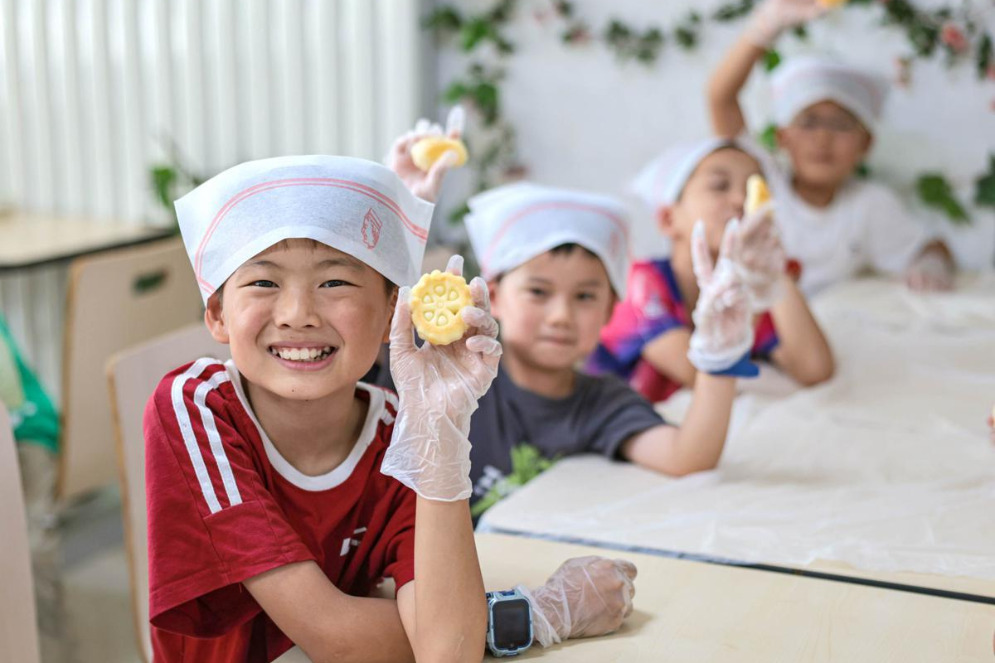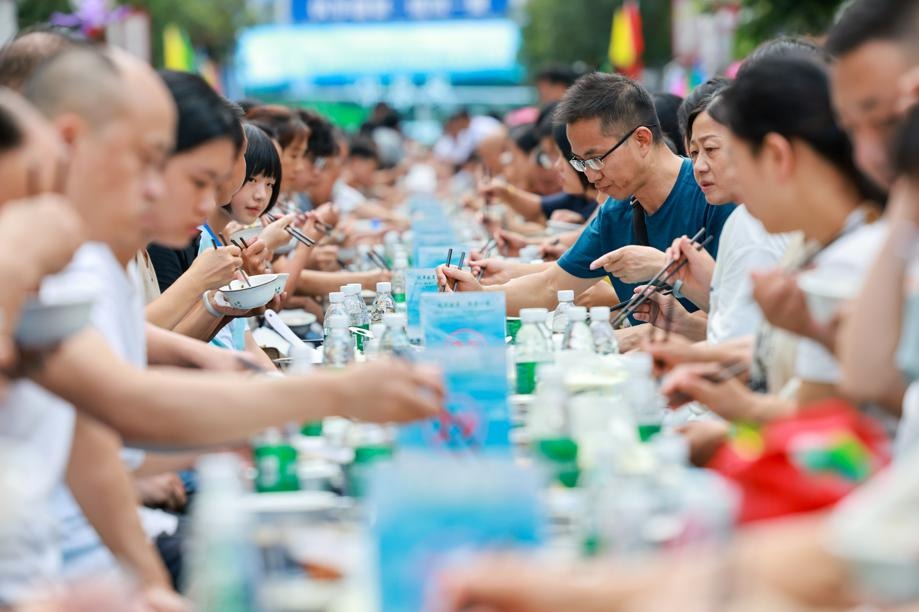Tianjin trials brain-computer interface for neurocritical care

China initiated its first multi-center clinical trial for brain-computer interface technology in neurocritical care on Sunday, marking a significant expansion of BCI applications beyond the rehabilitation of motor and cognitive functions.
The trial, launched in Tianjin, aims to explore new therapeutic approaches for severe neurological conditions.
Led by the Haihe Laboratory of Brain-Computer Interaction and Human-Machine Integration at Tianjin University and Tianjin Huanhu Hospital, the project brings together leading medical institutions from Beijing, Tianjin, Henan province, and other regions.
"This initiative will pave the way for broader medical applications, offering Chinese technologies, standards, and protocols for precise management of neurocritical conditions," said Liu Xiuyun, deputy director of the Haihe Laboratory.
Hydrocephalus, caused by excessive cerebrospinal fluid accumulation in the brain, can lead to increased intracranial pressure, brain tissue damage, and neurological dysfunction.
In severe cases, it may result in coma or death. According to data from the Haihe Laboratory, about 30 to 50 percent of patients with cerebral hemorrhage may develop secondary hydrocephalus. After large craniectomy, 20 to 40 percent of patients may also develop hydrocephalus. The condition also frequently affects patients with severe head injuries, intracranial infections, or post-operative brain tumor complications.
Liu noted that symptoms of hydrocephalus often resemble those of dementia or Parkinson's disease, leading to a misdiagnosis rate as high as 62 percent in rural areas. The condition also faces clinical challenges such as prolonged diagnosis timelines and limited treatment options, which strain healthcare resources and increase patient costs. Innovative technologies are urgently needed to address these issues.
On the same day, the Tianjin University team unveiled a series of domestically developed BCI medical devices and demonstrated next-generation BCI technology with fully independent intellectual property rights.
Using self-developed encoding and decoding chips and acquisition chips, the team created wearable EEG devices that enable real-time monitoring of neurocritical health indicators.
These advancements have reduced the diagnosis time for hydrocephalus from two to three days to just 30 minutes while improving accuracy.
"Since the introduction of Shen Gong No 1, the world's first artificial neurorehabilitation robot, in 2014, Tianjin University's BCI research has entered the stage of large-scale clinical application," Liu added.
Ge Le, Party secretary of Tianjin Huanhu Hospital, expressed hope that the technological achievements will "build bridges among researchers, clinicians, and patients, allowing innovative breakthroughs to integrate more efficiently into clinical practice and directly benefit patients".
Ge emphasized that BCI technology significantly expands the boundaries of neurological medicine with notable clinical value. The hospital, in collaboration with the Haihe Laboratory, has already served hundreds of patients in areas such as stroke rehabilitation and epilepsy treatment, achieving several groundbreaking results. Additionally, the nation's first comprehensive BCI clinical trial ward, jointly established by the institutions, is set to open in October.
Liu Tingyu contributed to this story.
- Tianjin trials brain-computer interface for neurocritical care
- China Daily's 'Stories across the Strait' wins recommendation
- Mainland resolutely opposes military contacts between US, Taiwan: spokesperson
- Hainan Mellsser Hospital joins Mayo Clinic Care Network
- Qingyang township celebrates a bountiful harvest season
- Mainland accuses DPP authorities of 'selling out' Taiwan's interests to US





































